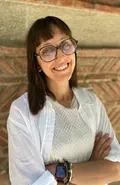A01: Ambiguous Property: From Late Antiquity to the Middle Ages
Duration
01/2025
- 12/2028
Funding
Deutsche Forschungsgemeinschaft (DFG)
Project management


Main project
- SFB TRR294 "Strukturwandel des Eigentums" Prof. Dr. Hartmut Rosa
Related projects
Prof. Dr. Hartmut Rosa,
Dr. Jörg Oberthür
Prof. Dr. Martin Mulsow
Dr. Jörg Oberthür
Prof. Dr. Beatrice Renzi
Prof. Dr. Martin Mulsow
PD Dr. Felix Krämer
Prof. Dr. Markus Vinzent
The project examines the conceptualization (philosophical, theological, legal) of property as private and institutional (in contrast to divine property, which was studied in the first funding phase) that emerged during this period and the practical implementation of this new conception. It is characterized by its theoretical and practical rejection, relativisation, socialisation or shaping, which went hand in hand with ascetic movements, the expansion of short-term usufruct, and long-term, nested obligations, the development of social obligations, the shifting or opacity of property structures whereby the commodification of land and large estates went hand in hand with the initiation of (inheritance) taxes for the poor. Nonetheless, the discourse on poverty paradoxically brings about an even greater propertization of these estates.
The SFB investigates the institution of property with a view to its capacity for change, its current transformation and the respective consequences of this. The initial observation that private property in particular has gained global significance on the one hand but is challenged in many ways on the other was empirically and conceptually substantiated and concretized in the first funding phase in research on the history of today's property systems, current conflicts, and alternative options regarding order. In the second funding phase, the identified processes of change will be systematically researched in a comparative way. Points of comparison are the extensional distribution of established property patterns, the intensional definition of property, the temporal duration of change processes and the temporality of property itself as well as the spatial distribution and change of property goods and orders. The project areas are now also oriented towards comparative analyses. First, we want to investigate problematic property objects; second, to examine tensions between property subjects; and third, to shed light on how property orders are coordinated with other social principles of order or come into conflict with them. Our research assumptions continue the hypotheses of the proposal in a differentiated and more precise form. We assume that the global expansion of property partly requires its diversification, partly triggers defense; property is also partly subordinated to other goals, and property regimes remain globally heterogeneous. In addition, concrete interim results on scientific and practical “property oblivion”, on the partial decoupling of property titles and ownership practices, on new state property regulation, on the concatenation of heterogeneous property goods and disposal rights as well as on alternative forms of ownership that both partly support and partly confront traditional practices characterize the program for the second funding phase. In newly established theoretical and thematic forums, we combine these strands with debates on statehood in transition, public infrastructures, commodification, and assetization, the socioecological crisis and the persistence of non-Western orders. By focusing on these topics, theSFB can simultaneously capture the changing (information) technological, ecological, and global political conditions that put property under pressure to change. In order to conduct empirical comparative research into the diversity of these topics, to integrate them conceptually, and to interpret them in terms of social theory, cooperation between various disciplines in the humanities and social sciences remains essential. The unifying basic question remains whether a changed basic structure of the regulated disposal of goods is forming.
